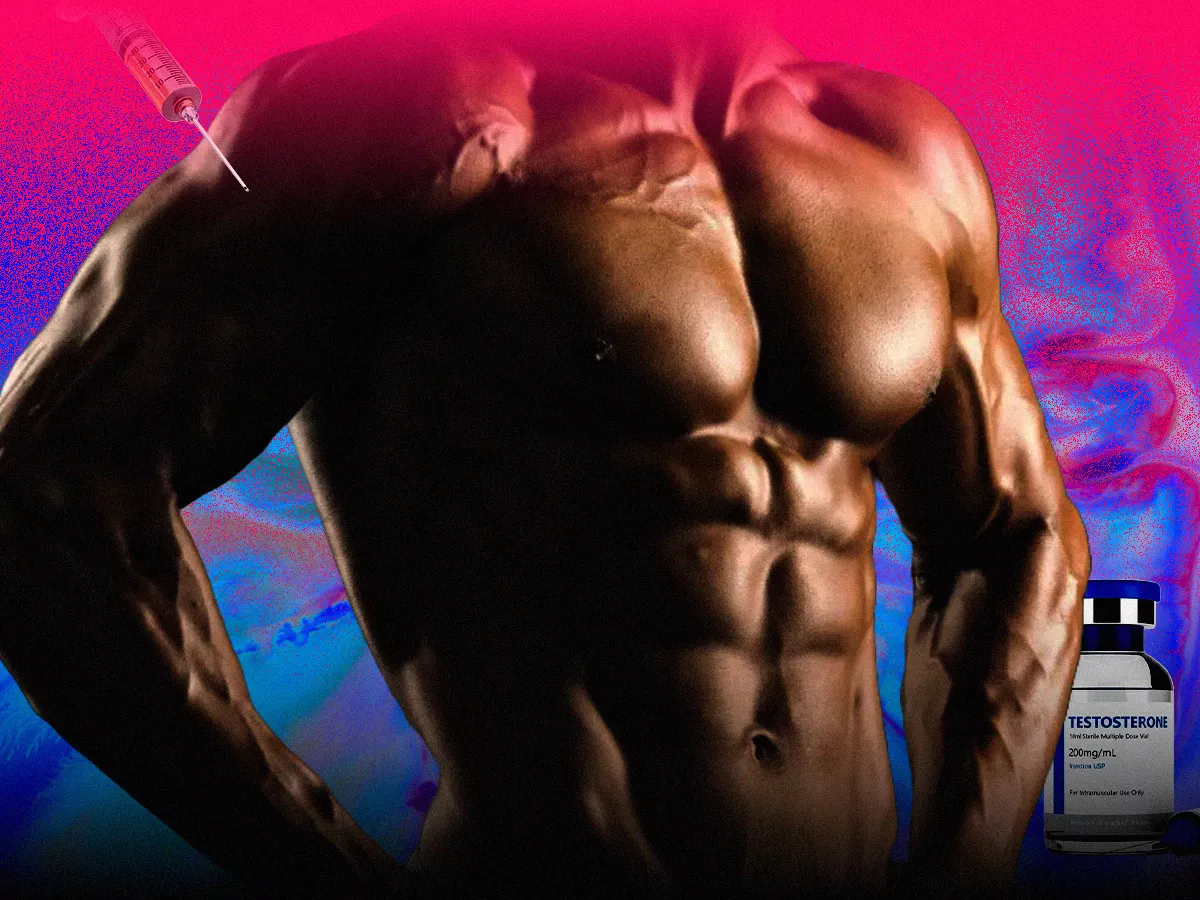TRT Myths and Misconceptions: Separating Fact from Fiction
2897
Let’s uncover myths, facts, benefits, and risks of Testosterone Replacement Therapy (TRT) to make informed health decisions.

Testosterone Replacement Therapy (TRT)
Testosterone plays a vital role in men’s health, influencing everything from mood to muscle mass. A condition like low testosterone can affect a significant number of men. It can cast a shadow over their well-being as well as impact energy levels, libido, and even mental clarity.
Testosterone replacement therapy (TRT) is a popular treatment for strengthening energy and restoring testosterone to normal levels. However, it is surrounded by myths that can cloud our understanding of its true benefits and risks.
It is time we avoid getting lost in the maze of information where some paths enlighten and others confuse. Let’s cut through the noise and separate fact from fiction!
Interested in Testosterone Replacement Therapy? Contact us at info.bkk@pulse-clinic.com or any of the following platforms:
![]() +66 65 237 1936
+66 65 237 1936  @PULSEClinic
@PULSEClinic ![]() PulseClinic
PulseClinic
Common Myths About Testosterone Replacement Therapy (TRT)
1. TRT is only for older men
The notion that testosterone replacement therapy (TRT) is only for older men is a misconception. Low testosterone and hypogonadism can affect men as they age, with hormone levels starting to decline around age 40, similar to women.
However, this does not mean it is mainly for older men. Testosterone levels can be influenced by many factors at any age. TRT serves as a valuable option for men of different ages experiencing low testosterone symptoms. While age-related decline is common, other conditions and medications can also lead to low T. The one constant is that those affected are males assigned at birth (MAAB).
2. TRT is a magic cure that gets rid of all male health problems
Low testosterone affects various physical and physiological aspects of the body. While testosterone replacement therapy (TRT) can lead to significant improvements for those with low T, it is not a cure-all.
Remember that no single treatment can address every issue. While TRT can play a significant role in male health, it should be considered as part of a broader, holistic approach rather than a standalone solution.
3. TRT can lead to increased aggression and mood swings
Despite the common belief that TRT turns men into aggressive, muscle-bound figures, the evidence suggests otherwise. When administered in therapeutic doses and under proper medical supervision, testosterone does not inherently cause rage and mood swings.
Although elevated testosterone levels are associated with aggressive behavior, testosterone replacement therapy (TRT) does not push levels to such extremes. Instead, it aims to restore hormone levels to a normal range.
TRT may have side effects, but rage is not typically one of them. Mood swings, irritability, and anger are more common symptoms of low testosterone. If you experience these issues, it may indicate that your testosterone dose needs adjustment.
This is why follow-up appointments with your TRT provider are important.
4. TRT reduces testicle size
TRT doesn’t usually cause testicle shrinkage. While some people on testosterone replacement therapy may experience this, it is more common with testosterone abuse rather than proper TRT. Properly administered TRT can even help maintain testicular function. However, it is important to have regular check-ups with your provider to monitor testicular health and address any concerns.
Add us on Line and stay in touch.
5. TRT makes you infertile
TRT does not give you a one-way ticket to permanent infertility. TRT can sometimes temporarily reduce sperm production and act as a contraceptive. If you are concerned about fertility, there are alternative treatments and precautions you can take. Talk to a healthcare professional who specializes in reproductive health to discuss the effects on fertility and explore options. Sperm banking is also a proactive step to consider.
6.TRT is only for bodybuilders
TRT is a medical treatment aimed at addressing low testosterone levels and their symptoms. While testosterone can aid in muscle growth and athletic performance, this is not the primary goal of TRT.
Yes, some people misuse TRT for performance enhancement, as anabolic-androgenic steroids, including testosterone, are known as performance-enhancing drugs. However, TRT is not limited to athletes or bodybuilders; it is intended to treat low testosterone and hypogonadism by restoring hormone levels to a normal range.
7. TRT causes heart problems
Concerns about TRT causing heart problems have long circulated, leading to questions about its safety. Recent research has closely examined TRT’s potential cardiovascular effects. Although the FDA advises that T supplements carry warnings about possible heart attack and stroke risks, there is no solid evidence linking TRT to increased cardiovascular risk.
Growing evidence suggests that properly administered TRT does not significantly impact heart health.
8. TRT is a quick fix for building muscle
Bodybuilders often use testosterone, but it's not a miracle for muscle-building on its own. While TRT supports muscle development and is crucial for muscle protein synthesis, it cannot replace the need for regular training. Effective muscle growth requires weightlifting, strength training, a balanced, protein-rich diet, and a healthy lifestyle in addition to TRT.
Testosterone Replacement Therapy (TRT) Facts You Should Know About
1. TRT can be prescribed for medical reasons
Testosterone replacement therapy (TRT) is a legitimate medical treatment with significant benefits for those dealing with health conditions that lead to low testosterone levels. Although age-related decline is the most common cause of low T, it is not the only one.
Here are several medical conditions that can result in low testosterone levels:
Hypogonadism: This condition results in reduced testosterone production and can be either primary (originating in the testes) or secondary (originating in the hypothalamus or pituitary).
Chronic Illnesses: Certain long-term conditions can lead to hormonal imbalances and low testosterone, including:
- HIV/AIDS
- Chronic Obstructive Pulmonary Disease (COPD)
- Kidney disease
- Obesity
- Type 2 diabetes
Genetic Disorders: Conditions such as Klinefelter syndrome can reduce testosterone production.
Testicular Trauma: Injuries to the testicles can affect testosterone levels.
Medications: Some drugs, including certain opioids, steroids, and antidepressants, may interfere with testosterone production.
Additionally, TRT can also increase sexual health, improve vascular reactivity and blood flow, increase energy levels, decrease depression, build lean muscle mass, improve cognitive function, and improve lipid profiles.
2. TRT can come with psychological effects
Optimized testosterone levels from TRT can enhance cognitive function, stabilize mood, and improve mental well-being. Testosterone helps stimulate dopamine release, which is essential for regulating mood, motivation, and pleasure, leading to a better overall sense of well-being and mental resilience.
However, moderation is key. Responsible use of TRT is crucial, and careful monitoring of hormone levels is necessary to ensure that the benefits are achieved without compromising overall health.
3. TRT enhances cardiovascular health
TRT and balanced hormone levels do not cause heart problems. This myth might be mentioned because high androgen levels can raise LDL (bad) cholesterol and lower HDL cholesterol.
People on TRT are initially low in testosterone, so the treatment aims to return their levels to normal, not exceed them. TRT can help reverse damage from low testosterone and improve cardiovascular health. Maintaining the right balance is crucial, which is why personalized treatment and careful monitoring are important.
TRT should be personalized based on individual health profiles, including age, cardiovascular risk factors, and overall health. Customized treatment plans help maximize the cardiovascular benefits of TRT.
4. TRT is a component of a holistic health strategy
TRT helps with low testosterone but should be part of a complete health plan. Combining it with exercise and a balanced diet supports overall wellness. Testosterone replacement therapy and exercise work well together, improving muscle development, cardiovascular health, bone density, and mood.
Additionally, managing stress, getting enough sleep, and making healthy lifestyle choices are important for overall hormonal balance.
5. TRT improves men’s health
Testosterone replacement therapy (TRT) is a useful option for correcting hormonal imbalances and enhancing overall well-being. With the facts clarified and myths debunked, you can now make an informed decision.
Are you concerned that you might have low testosterone? Wondering how you can get on testosterone replacement therapy? Book an appointment with PULSE Clinic for an appropriate diagnosis and create a personalized treatment plan.
Frequently Asked Questions
Do I need to book an appointment?
- Yes. Here's how:
- Go to the PULSE Clinic Booking page (or click the Book an Appointment Now button below)
- Choose your preferred location
- Choose the service you want to avail
- Choose your preferred appointment date and time
- Fill out the necessary details
- Confirm booking
Trust PULSE CLINIC to take care of your health like other 45000 people from over 130 countries. We provide discreet professional service with high privacy. Here to help, not to judge.
Loading...
Clinic Locations
Loading...























